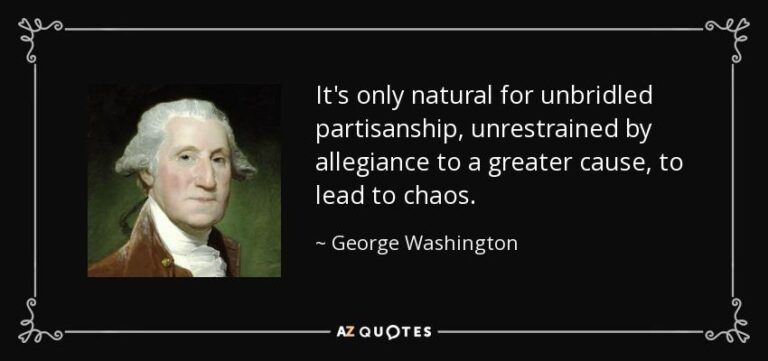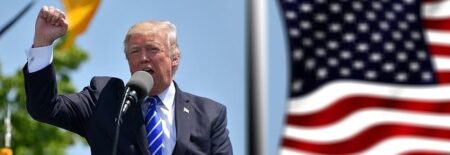George WashingtonŌĆÖs Enduring Warning: Navigating AmericaŌĆÖs Partisan Divide Today
WashingtonŌĆÖs Early Insight on Political Factions and Its Contemporary Significance
Long before the current era of intense political rivalry, George Washington foresaw the perils posed by entrenched party divisions. In his farewell address, he cautioned that political factions could breed hostility, weaken national solidarity, and prioritize narrow interests over the collective good. Washington warned that rigid party loyalty risks simplifying complex policy discussions into adversarial battles, thereby undermining democratic debate and effective leadership.
Today, his concerns echo loudly amid a political environment marked by deep polarization, amplified by segmented media and social networks. The fallout includes:
- Legislative deadlock stemming from an unwillingness to find middle ground
- Electoral polarization with voters increasingly divided along party lines
- Declining trust in institutions perceived as partisan actors
Addressing these challenges requires embracing WashingtonŌĆÖs vision of unity by fostering dialogue that transcends party boundaries, enhancing civic education, and encouraging bipartisan cooperationŌĆöessential steps to revitalize the democratic ideal of government truly ŌĆ£by the people.ŌĆØ
The Escalating Risks of Partisan Entrenchment in Modern Politics
As political factions harden, the nationŌĆÖs social fabric begins to unravel. This growing divide hampers democratic processes, where compromise is often viewed as weakness rather than strength. The consequences are profound: stalled reforms, deteriorating public discourse, and eroding institutional trust. Citizens increasingly prioritize party loyalty over substantive policy engagement, threatening the effectiveness of governance.
Beyond political institutions, this polarization fractures communities, leading to:
- Increased social discord and alienation among neighbors
- Proliferation of misinformation driven by partisan media bubbles
- Lower civic engagement as disillusionment grows
| Area Affected | Outcome |
|---|---|
| Legislative Productivity | Declines due to partisan stalemates |
| Public Confidence | Weakens as government is seen as biased |
| Community Unity | Fractures along political lines |
How Partisan Loyalty Erodes Democratic Foundations and Public Confidence
The intensification of party allegiance threatens the core of democratic governance. When decisions are driven more by partisan objectives than by the public interest, institutions designed to serve all citizens impartially lose their effectiveness. This polarization leads to legislative gridlock and policy stagnation, frustrating voters and diminishing government responsiveness.
Moreover, public trust suffers as citizens perceive leaders prioritizing party victories over transparency and fairness. This dynamic contributes to:
- Lower voter participation due to skepticism about electoral fairness
- Spread of false information within echo chambers
- Media fragmentation that deepens societal divides
| Consequence | Effect on Democracy |
|---|---|
| Policy Deadlock | Delays critical reforms and decision-making |
| Trust Deficit | Increases public cynicism and disengagement |
| Polarized News | Amplifies division and misinformation |
Effective Approaches to Reconcile Divisions and Strengthen National Unity
Rebuilding a cohesive society requires deliberate efforts rooted in empathy and open communication. Initiatives that bring together individuals from diverse political backgrounds to engage in respectful dialogue have shown promise in bridging divides. Encouraging active listening and understanding helps reduce entrenched viewpoints and fosters collaboration. Additionally, enhancing civic education equips future generations with the tools to critically evaluate information and participate meaningfully in democracy.
Key strategies include:
- Encouraging bipartisan policymaking to demonstrate cooperation beyond party lines
- Increasing transparency and accountability to restore faith in public institutions
- Supporting independent local journalism that emphasizes factual reporting over sensationalism
- Promoting civic engagement through accessible community forums and projects
| Strategy | Expected Outcome |
|---|---|
| Bipartisan Working Groups | Facilitate compromise and reduce legislative stalemates |
| Civic Literacy Programs | Empower citizens with critical thinking and democratic skills |
| Community Dialogue Forums | Enhance social cohesion through inclusive conversations |
Final Reflections: Embracing Unity to Preserve Democracy
As political divisions deepen and party loyalty increasingly shapes public discourse, George WashingtonŌĆÖs early admonition against factionalism remains profoundly relevant. Revisiting his call for vigilance and unity offers vital guidance for todayŌĆÖs fractured political environment. To move forward, Americans must prioritize the nationŌĆÖs collective interests above partisan agendas. Only by fostering a spirit of cooperation and mutual respect can the country heal its divisions and uphold the democratic principles upon which it was founded.







